To Brexit or Not To Brexit
Adelina Marini, June 25, 2015
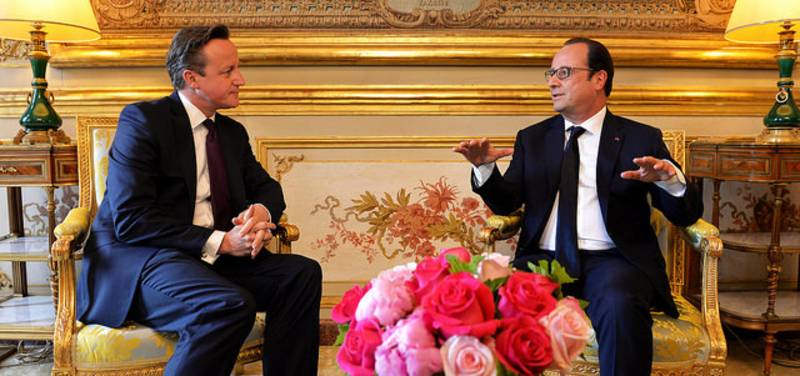 It looks like a heavy program for the EU summit starting today in Brussels. There is almost no topic on the agenda that does not test the stability of the Union – whether at its core (the Eurozone) or its entirety. Somewhere in between the quarrel over mandatory immigrant quotas and the expected resolution of the Greek drama the menu of the leaders of the 28 member countries will have to contain Cameron’s drama. This is expected to happen somewhere at the end of dinner when the leaders will be a little better inclined to discuss another exit – the BRexit. A deep debate is not expected on the subject, just Prime Minister David Cameron to inform his colleagues about Britain’s intentions for a referendum.
It looks like a heavy program for the EU summit starting today in Brussels. There is almost no topic on the agenda that does not test the stability of the Union – whether at its core (the Eurozone) or its entirety. Somewhere in between the quarrel over mandatory immigrant quotas and the expected resolution of the Greek drama the menu of the leaders of the 28 member countries will have to contain Cameron’s drama. This is expected to happen somewhere at the end of dinner when the leaders will be a little better inclined to discuss another exit – the BRexit. A deep debate is not expected on the subject, just Prime Minister David Cameron to inform his colleagues about Britain’s intentions for a referendum.
After surprisingly winning an independent second governing mandate Mr Cameron immediately started working on his main pre-election commitment – organising a referendum on membership and a process of renegotiation. The bill was already passed through the lower house of Parliament, pending approval by the upper house. The bill stipulates a referendum is to be held not later than December 31 of 2017 but an exact date is not yet fixed. In the mean time, while the bill is going through the parliamentary procedures, London is full of hectic activity on establishing the two major teams in the campaign – for and against. The proposed question in the referendum bill is: “Should the United Kingdom remain a member of the European Union?”.
Preparation is starting to pervade Brussels as well. EurActiv announced that a head of the “BRexit” taskforce has already been appointed. He is 59 year old Brit Jonathan Faull who has been dealing with financial regulations. Mr Faull will report directly to the President of the European Commission Jean-Claude Juncker on everything concerning the British referendum that is yet to have a date set. According to a high-ranking EU official no substantial discussion is expected to start at the leaders’ summit today (June 25) but rather a decision on the renegotiation time frame is to be made. Considering there is no date for the referendum set yet it is difficult to determine when the European Council should tackle the subject.
Aside from not having a date for the referendum, an exact list of demands for renegotiations is missing. Statements made so far make it clear, that Great Britain will demand several (a few) impossible and many more possible things. Among the impossible is the demand for opening the EU founding treaties and deleting the phrase “an ever closer union” from the preamble. A phrase that Cameron’s conservatives interpret as a threat that the UK will be condemned to an ever decreasing sovereignty in favour of Brussels, a claim easily disproved by Britain’s numerous exceptions, according to European leaders. President of the European Parliament Martin Schulz stated during his visit to the British capital earlier this month that deleting this phrase from the treaties has no chance of happening.
He claims this is an absolutely symbolic phrase and nobody will put in the effort to open the Treaty of Lisbon for amendments over it. Another mission impossible for Cameron is curbing the freedom of movement within the Union. However, this subject may turn out not to be so impossible in the process of renegotiation with Great Britain, considering the quarrels going on between member countries on the subject of the Commission’s agenda for dealing with external migration. Member countries as a whole are adamant that the free movement of people within the Union is one of the four pillars on which the EU is built, however some of them have clearly shown they would support certain changes aiming to stop the misuse of the wealthier members’ social welfare systems.
Among the possibly achievable demands of the British Prime Minister are completing the common market, eliminating redundant regulations, freeing of trade. Considering the imminent deepening of integration in the zone of the euro the United Kingdom demands guarantees that the interests of states outside the Eurozone will be protected as well. British Minister of Finance George Osborne recently worded the problem by pointing out that soon the Eurogroup would have an automatic qualified majority on all items of legislature on financial services in the EU. Mr Osborne believes the ECB having a single 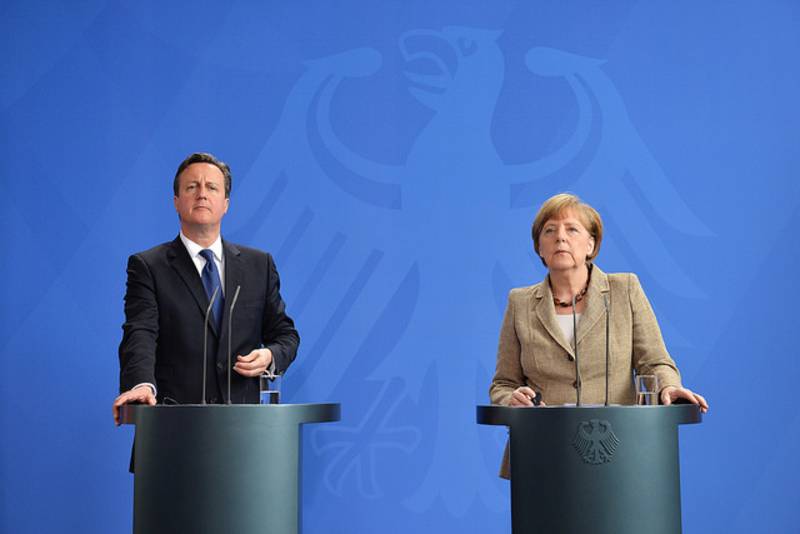 financial supervisor to take care of the Eurozone’s interests will be at the expense of the rest in the common market.
financial supervisor to take care of the Eurozone’s interests will be at the expense of the rest in the common market.
That is why Great Britain insists on an agreement with the Eurozone that would protect the integrity of the common market. This will be a difficult point to negotiate as the future deepening of integration in the Eurozone is now put to the freeze until the Greek question is dealt with and until it becomes clear if Great Britain stays in the EU or not. The philosophy behind Cameron’s efforts is that Europe should be a flexible network of countries, rather than a hard block. This means countries not only move at different speeds, but in different directions. At this stage, though his continental colleagues are unable to give a firm answer to these specific issues.
The most comprehensive proposals for an EU reform until now have come from British reformist think tank Open Europe, which over the past two years led the debate in Great Britain and Europe on the British demands. It is by no coincidence that the centre’s director Mats Persson was named Prime Minister David Cameron’s adviser on British matters in the EU. The think tank’s two new co-directors propose efforts be concentrated on the subjects of common market and competition. According to their analysts at the foundation of the EU should stand flexibility and the rights of non-Euro countries. The common market should be at the centre, not “an ever closer union”.
Besides the EU should turn into a multi-currency union, which would prevent turning the Eurozone into the EU’s motor. Open Europe’s vision is one of the currency block being rather “a voluntary constellation within the Single Market”. A reform of EU budget is suggested, where regional subsidies would be focused on the needy and the spare funds are transferred from agriculture towards scientific research and development. This should be used as early as at the review of the multiannual finance framework next year. Another well known suggestion of the think tank is the national parliaments’ “red card”. This means national parliaments can block unwanted legislature. This one is seen as one of Britain’s mission impossible as it would lead to the EU’s natural disintegration.
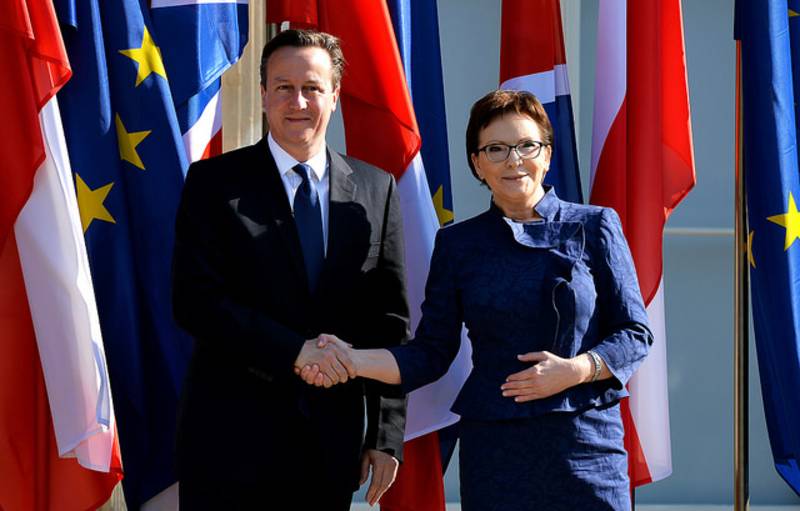 Regaining control over the judicial systems and internal affairs is another Open Europe suggestion on Cameron’s list. This demand seems incompatible with a truly functioning common market. According to the EU source there is a lot of technical work to be done, but first there needs to be an understanding on how to approach this issue. This means a time frame must be agreed upon first, and then which issues are eligible for discussion and which are not. Tomorrow’s meeting will only tag the subject as having entered Europe’s agenda. Another exit to discuss, the BRexit, if it happens, would look thought-through and voluntary, while in the Greek case it looks more and more like a GRaccident (Greece+accident), or something that no one wanted, it just happened.
Regaining control over the judicial systems and internal affairs is another Open Europe suggestion on Cameron’s list. This demand seems incompatible with a truly functioning common market. According to the EU source there is a lot of technical work to be done, but first there needs to be an understanding on how to approach this issue. This means a time frame must be agreed upon first, and then which issues are eligible for discussion and which are not. Tomorrow’s meeting will only tag the subject as having entered Europe’s agenda. Another exit to discuss, the BRexit, if it happens, would look thought-through and voluntary, while in the Greek case it looks more and more like a GRaccident (Greece+accident), or something that no one wanted, it just happened.
Translated by: Stanimir Stoev
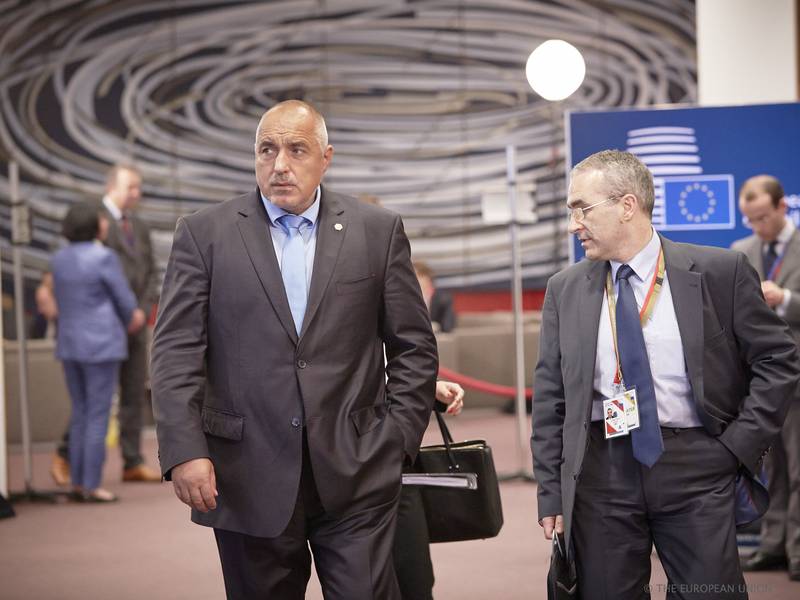 Boyko Borisov | © Council of the EU
Boyko Borisov | © Council of the EU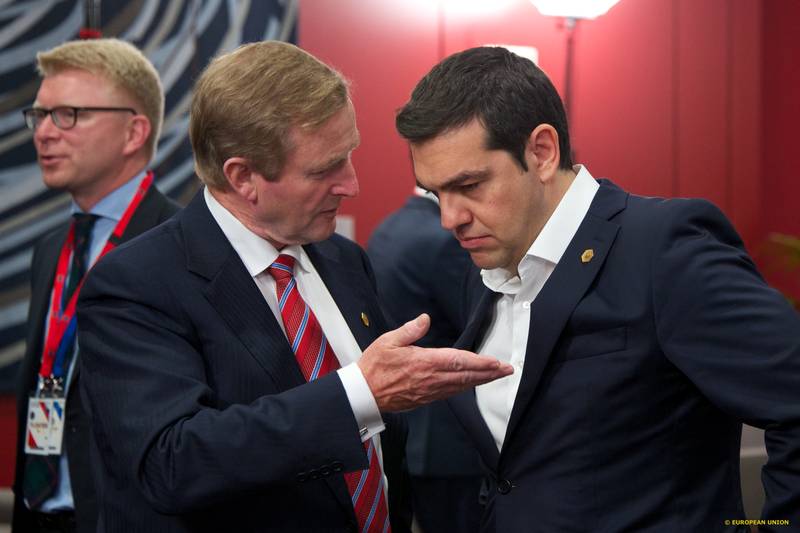 Enda Jenny, Alexis Tsipras | © Council of the EU
Enda Jenny, Alexis Tsipras | © Council of the EU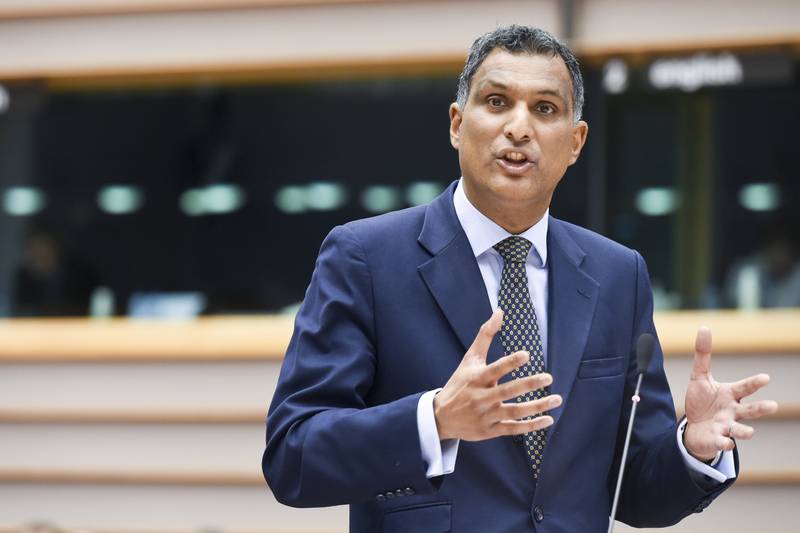 Syed Kamall | © European Parliament
Syed Kamall | © European Parliament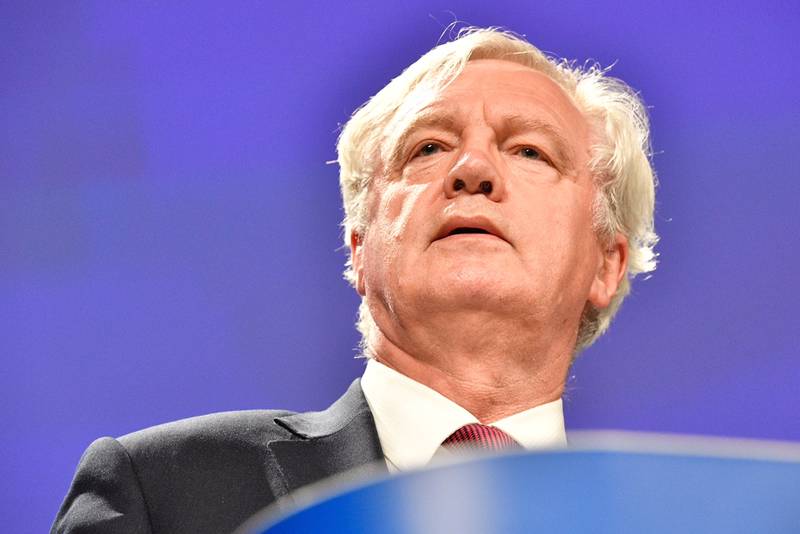 David Davis | © European Commission
David Davis | © European Commission Angela Merkel | © Council of the EU
Angela Merkel | © Council of the EU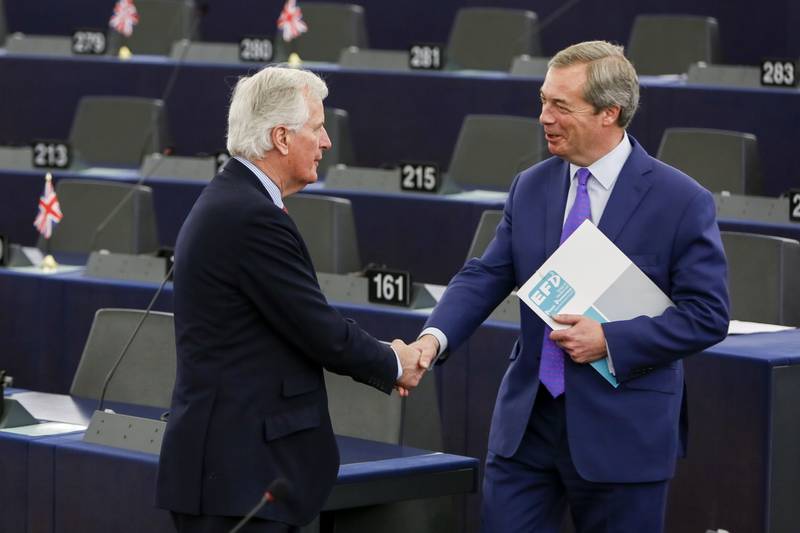 Michel Barnier, Nigel Farage | © European Parliament
Michel Barnier, Nigel Farage | © European Parliament